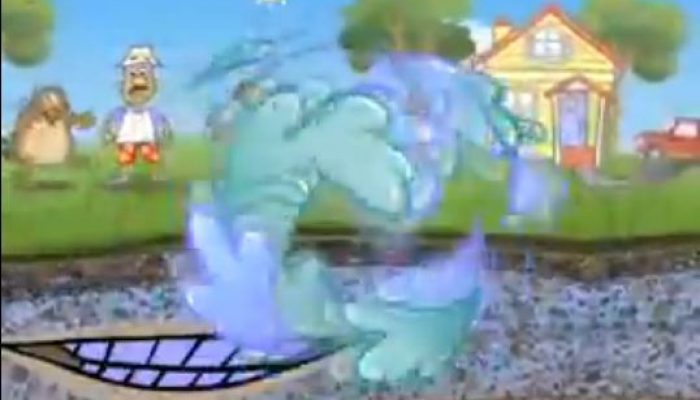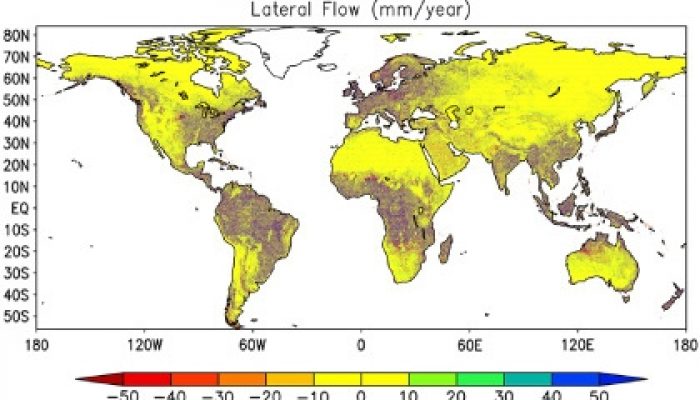Display "Groundwater Animation" from YouTube Click here to display content from YouTube. Learn more in YouTube’s privacy policy. Always display content from YouTube Open "Groundwater Animation" directly Clear graphics, good message and an awesome sing-along. what more could one ask for? the only message that I would add is the importance of virtual groundwater use in what we de ...[Read More]
WaterUnderground
The importance of groundwater for climate models
Contributed by Nir Krakauer nkrakauer@ccny.cuny.edu Does water fall if no one hears it? It does. Invisible water flows slowly under the ground, in soil and rock, downhill or from wet to dry areas. This groundwater eventually surfaces at rivers, springs, swamps, and other water features. As rivers and lakes get tapped out or polluted, more groundwater is being pumped out for irrigation and industri ...[Read More]
GeoSphere
#AESRC2014 Highlights
Well, AESRC is done for another year and with it my role as co-chair of the organizing committee! Thank goodness for that! Hopefully, I can finally get some actual thesis related work done in the coming months…and maybe get back to blogging a bit as well. However, as grateful as I am that AESRC is done, I have to say that it was a fantastic conference this year with a host of terrific talks ...[Read More]
Geology for Global Development
European Geosciences Union – General Assembly 2014
Once again Geology for Global Development will have a strong presence at the European Geosciences Union’s General Assembly, in Vienna (27 April – 2 May 2014). This is one of the largest gatherings of geoscientists in the world – with a particularly large group of natural hazard scientists, and groups from hydrology and climate. —- As usual, the Natural Hazards division will ...[Read More]
Green Tea and Velociraptors
Macroecology – scaling the time barrier
If there was ever an overdue discussion in palaeontology, it was how we reconcile the differences in time scales when looking at different periods in our history. This is becoming increasingly more important as scientific research is being asked to have demonstrably greater ‘impact’ in terms of some social, economic, or environmental relevance, and for palaeobiologists and palaeoecologists, this m ...[Read More]
Geology for Global Development
Friday Photo (122) – Landslide Prone Slopes in Guatemala City
Development of Housing on Landslide Prone Slopes in Guatemala City. These slopes are regularly impacted by mass movement events, during the rainy season. Planning enforcement and monitoring is also reported to be impacted by ‘no-go’ zones for police in this part of the city. Credit: Joel Gill, 2014
Four Degrees
Citizen science: how can we all contribute to the climate discussion?
Until the turn of the 20th century, science was an activity practiced by amateur naturalists and philosophers with enough money and time on their hands to devote their lives to the pursuit of knowledge and the understanding of the natural world. Today, scientific research is an industry of its own, carried out by highly trained and specialised professionals in academic institutions and research la ...[Read More]
Geology Jenga
A foreseeable, yet surprising earthquake?
On Wednesday morning I woke up to a flurry of activity on my twitter feed: there had been a large earthquake in northern Chile. I followed up some of the tweets and realised that there had also been some tsunami warnings as a result of the earthquake. After ascertaining that the scale of the disaster wasn’t as large as I’d anticipated, given the size of the quake (I don’t want you to think for one ...[Read More]
Polluting the Internet
UK Air Pollution: March/April 2014
Air pollution over the UK has been high on the agenda today with the media covering the widespread build up of aerosol pollution since the end of last week. This has led to health concerns, particularly for vulnerable groups such as children, the elderly and people with pre-existing heart and lung conditions. This follows the recent event in mid-March, which I covered here and saw Paris take measu ...[Read More]
Geology for Global Development
Opportunity: Landslide Posters for Teaching
Geology for Global Development are involved in an international project on Sustainable Resource Development of the Himalaya (see www.gfgd.org/projects/himalayas2014), which will cumulate in the delivery of a students’ programme in Ladakh, India, in June 2014. The programme will include lessons on resources, climate, earthquakes and landslides. GfGD have particular responsibility for delivering the ...[Read More]


